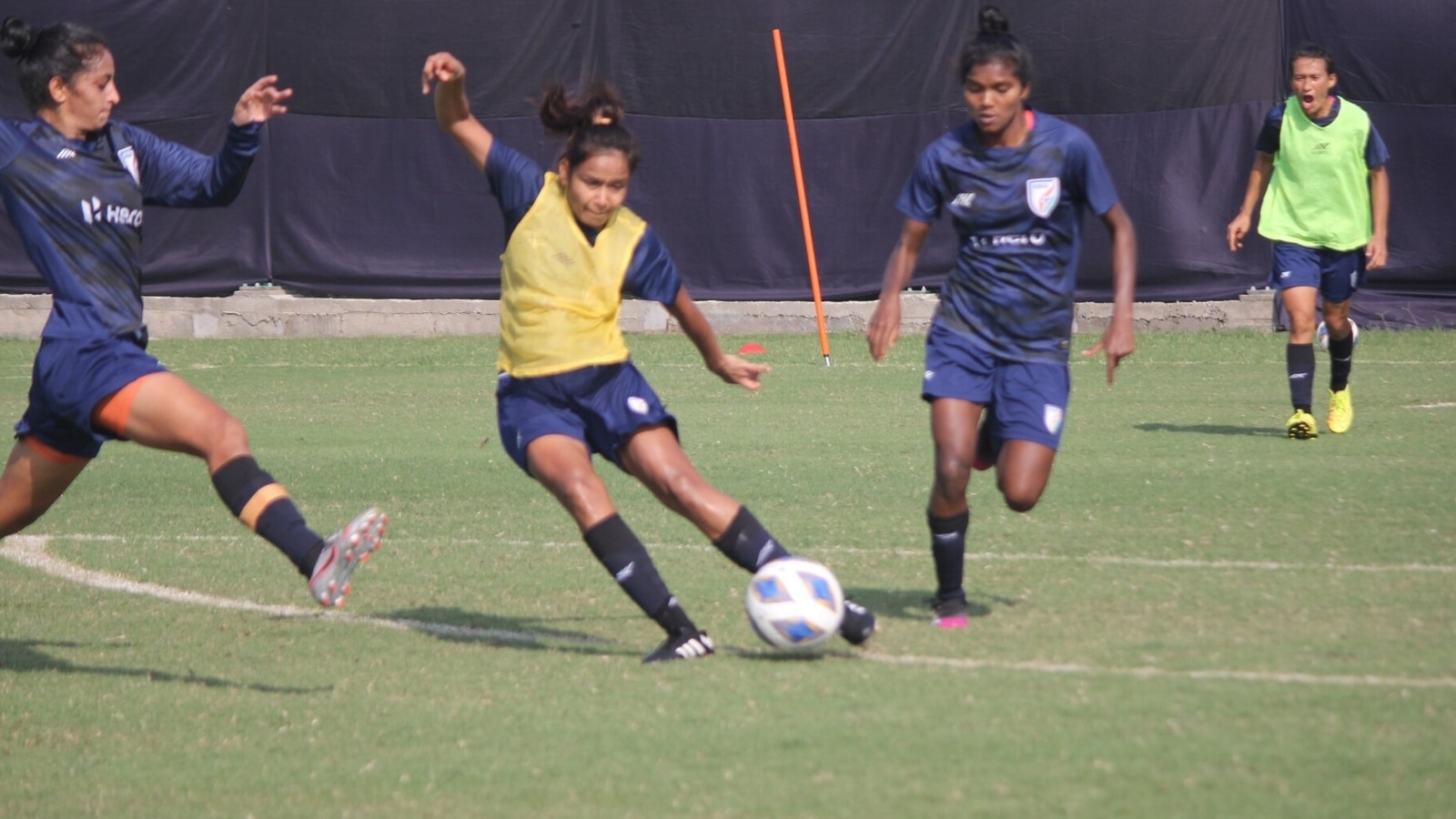Who’s responsible for India’s Asian Cup fiasco?
It’s been a pretty wretched January for Indian sport and no, this is not about cricket. On January 8, a ISL match between ATKMohun Bagan and Odisha was deferred after a Bagan player tested positive for Covid along with the partner of another player. Within a few days the number of positives across clubs had grown, players annoyed at the indecisiveness of the hobbled league, one calling the competition ‘adulterated’. By the middle of the month, at the biggest badminton event held in India, seven players including No.1 Kidambi Srikkanth tested positive during the India Open in New Delhi. Eight others considered ‘close contacts’ of the positive players withdrew.
Four days later, six of the 17-member Indian team at the ICC U-19 Cricket World Cup were found positive on the morning of their group match against Ireland. They had just enough players to take part in their next two group matches, with the BCCI sending in reinforcements in the form of five reserves.
ALSO READ | ‘Devastating’ setback for women’s game
It was reflective of these uncertain days when professional sport strives to stay afloat, relevant and in the black during a once-in-a-century pandemic. The transmission speed of the Omicron virus catches officials, organisers, athletes, broadcast industry professionals off-guard, with contingency plans themselves needing back-ups.
Yet nothing this month compares with the titanic disaster that was brought upon the Indian women’s football team during the most important event in its history—the AFC Women’s Asian Cup. In their opener, the Indian women had played attractive if somewhat profligate football against Iran. The match ended in a draw but if you were seeing the team for the first time you wanted to watch them again. Their skills, energy, ability to use space and work together with a common vision demanded attention.
What happened next was incomprehensible. Covid swept through the team, 12 positive cases on the eve of their second match against Chinese Taipei. India could not field the minimum of 13 players. They were scratched from the competition that was meant to mark a milestone in Indian women’s football. AIFF president Praful Patel tweeted that “despite the best measures”, it was “sheer bad luck” at play. “Let there be no fingers be pointed at any… no bubble is foolproof around the world.”
While it is true that there are no fool-proof bio bubbles, but with heightened biosecurity rules around sports events, mass outbreaks in a team are rare and therefore require scrutiny.
Every team at the Asian Cup football came to India with its own biosecurity protocols. Australia, China and Iran are reported to have travelled via charter flights. It is reported that the Indians were the only team living in their Vashi hotel. Each hotel was in its own bubble which had included staff, drivers and chefs. Local organising committees had doubled up their staff strengths as a back-up plan against outbreaks. Two sets of teams took care of one set of duties, each team completely out of contact with the other.
ALSO READ | Covid knocks India out of AFC Women’s Asian Cup
At the Asian Cup, five other teams—South Korea, Japan, China, Vietnam and Philippines—reported positive cases. The Indians had reported two cases even before the event began. But what could have led to 12 players testing positive at one go? Which, unlike other teams, left them unable to even field a squad?
Naturally in the face of institutional silence and point-no-fingers-policy, rumours and conspiracy theories proliferate. That the Indian team’s hotel bubble was not as biosecure as it needed to be. Or that no one on the team knows if they tested positive or not. A third is that players are now gagged from speaking not only to the media (true) but also to each other (unverified). This don’t point fingers could actually become useful PR code for “get those fingers quickly sweeping stuff under the carpet now”. No accountability, no responsibility.
Bidding for big events at the continental and world level is now at the core of AIFF’s ambitions. A mass Covid outbreak among its own team does not advertise efficiency or professionalism at a time when it was needed to be absolutely on point. Omicron leaves no room for error—if your Plan A is not good enough, you will be exposed. Here, India’s favourite Plan B—image management and jugaad—is meaningless.
Well before the AFC Asian Cup began, attention around its executive-decision making centered around Patel and AIFF secretary Kushal Das. Honestly, this was a brownie-points-accumulator event. Prepare an Indian women’s team across two-ish years for their few weeks in the sun, promote the hell out of the ‘Blue Tigresses’ on social media, push the lose-match-win-hearts narrative, get the event done. Cut to collecting accolades for ‘women’s empowerment’ and ‘world-class event.’ No one would notice the women players returning to their normal diet of inadequate match/league/tournament-play at state and national level.
Except now the world has seen what the footballing women always knew—that India’s football bosses don’t know how to look after them.
For all the latest Sports News Click Here
For the latest news and updates, follow us on Google News.

